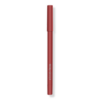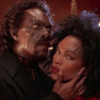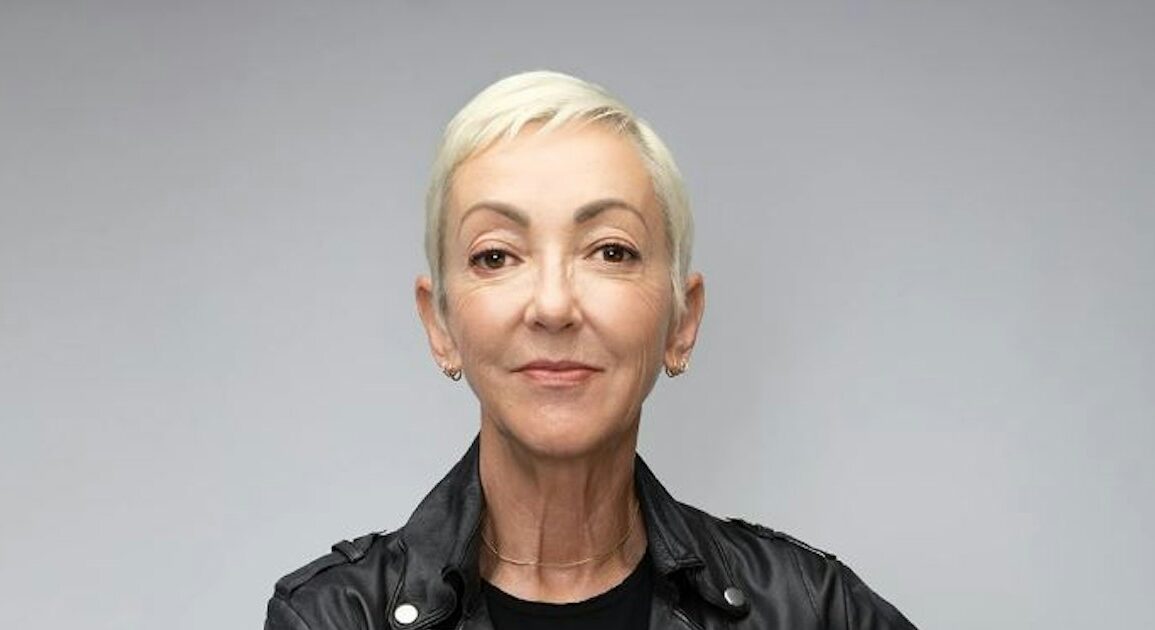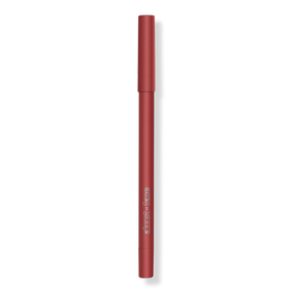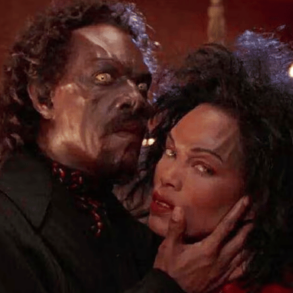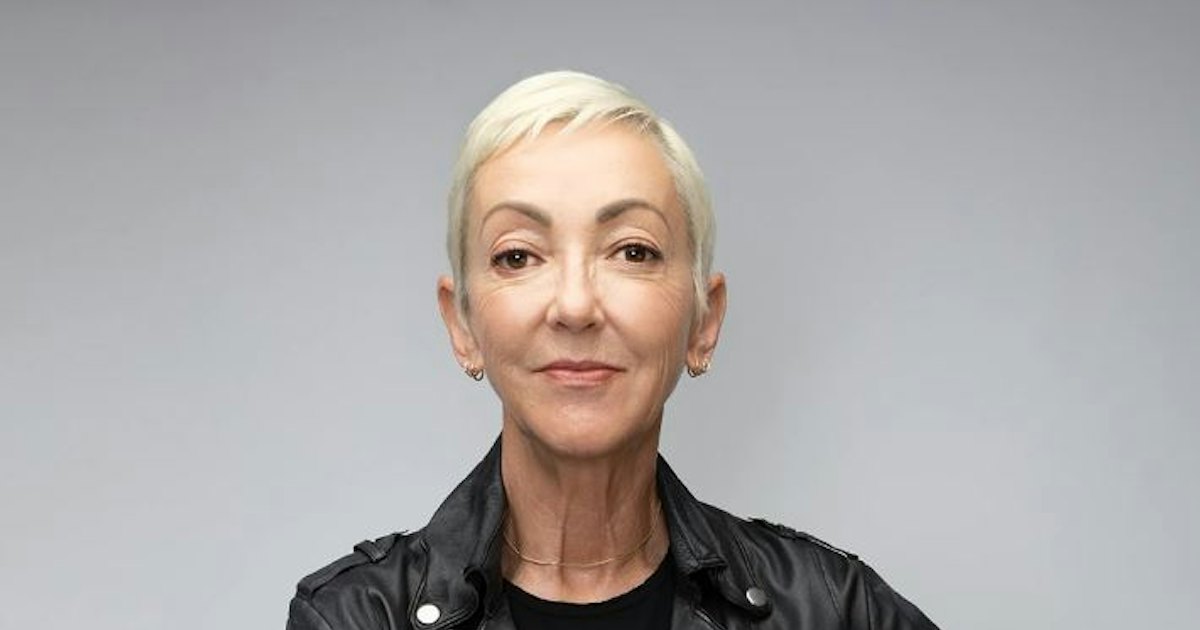
Dermalogica is a rare sort of skincare brand that feels both timeless and trustworthy. That’s thanks to founder Jane Wurwand, who started the company over 30 years ago. Born and raised in Scotland and trained as a cosmetologist, Wurwand launched the line in the U.S.—where she settled after a stint working for Redken in South Africa—as an array of products specifically formulated for use in a professional setting. In the decades since, the skincare landscape has changed dramatically, but her approach and core philosophy haven’t. She spoke to W about what keeps her going as an entrepreneur, the treatments she loves, and the drugstore lipstick she can’t live without.
You founded Dermalogica in 1986. What was the skincare landscape like back then, and what did you feel was missing from it when you first started out?
What was missing was skincare! Dermatologists, at that stage, were saying that nothing applied topically works. Plastic surgeons were applying Crisco after dermabrasion or a facelift. And then they were warning their patients no to use any moisturizers or creams, because most moisturizers had fragrance, color, petroleum or additives. And there were only three places you could really get products of any kind: department stores, drug stores and catalogs. Most salons did not sell any skincare products. In fact, in the U.S., only seven out of the 50 states even had a qualification to be an aesthetician, which in those days was called a cosmetician. New York did not have one!
So were people in New York just not getting facials back then?
Well, they were. A lot of people that had trained in Europe had their training grandfathered in, so to speak. Women like Christine Valmy, Georgette Klinger, Aida Grey, and Aida Thibiant. Everything was secret. Their methods were secret. The product was secret. It was all a secret ingredient, from someone’s uncle in Bulgaria. So those product lines were not available to other salons to use.
How did people react when you launched your line?
So, I was out there saying, “Look, this is professionally developed. I am a skin therapist. No fragrance, no artificial color, no lanolin, no mineral oil.” No one cared. They’d ask, “What are you telling us about what you leave out? Why aren’t you telling us about a miracle ingredient?” There are no miracle ingredients!
Obviously, the market has changed enormously since then. Why do your products continue to stand out?
Because they get results. People who have very sensitive skin, or people who have skin challenges have always gravitated to Dermalogica, because they feel very safe. We’re also very honest, and we’re very direct. We under-promise and over-deliver.
Your approach feels refreshingly hype-free in an age of impossible promises and celebrity marketing. What drives you as a business woman?
My driving force has always been skillset training and making people successful who didn’t go to university. I didn’t go to university. I went to what would be called beauty school. Most people don’t understand that every salon is a small business, and 68 percent of them are owned by women, and we’re one of the most inclusive industries there are. Our doors are open to everybody and the service industry is desperately short of skilled workers. What drives me is that success, independence, and financial independence are able to be realized by more people. And there are many ways to get there.
What’s something interesting or unexpected about the skincare industry that most people wouldn’t know?
One major misconception is the role of preservatives in formulas. It is important for a product to be preserved, because if it isn’t, it is not safe. You can get really nasty eye infections from products that are growing bacteria in them.
I keep reading things about beauty brand founders who say that they started off making it in their kitchen. I didn’t. I wouldn’t have dared. I don’t know how to make a product in my kitchen that would be successful. I know how to direct a chemist. Kind of like a fashion designer, who knows how to sketch the end product, but doesn’t necessarily know how to cut the pattern and stitch it all together, I know what it takes to make a product. And I don’t believe you can make it in your own sink.
What piece of skincare advice do you find yourself giving the most?
Cleanse your skin properly, twice a day. I know that sounds obvious, but that really is the fundamental basic. It’s like, what’s the best way to take care of clothes? Well, keep them clean.
Most people do one of two things: They either over-cleanse and under-moisturize, meaning they have dry, stripped skin. Or, they over-moisturize and under-cleanse and they’ve got breakouts, and congestion, and kind of dull, sluggish looking skin. It’s about getting that balance right. I believe you need to work with a skin therapist, someone who’s trained and licensed to not just understand product, but understand skin, to help you answer the question of, “Okay, what should I be using?”
Nowadays, it’s so easy to go overboard. I’ll talk to people and they’ll say, “I’m using a serum, and an essence, and a spray, and a cleanser, and a brush, and an exfoliant, and a retinoid, and a retinol.” It’s like going to a Las Vegas buffet and putting jello and sushi together on one plate.
What’s the one product you couldn’t live without?
Our special cleansing gel. It was the first soap-free foaming cleanser. We developed it 1985, ahead of the launch in ’86. And I’ve used it every single day, twice a day, since then.
What does the rest of your skincare routine look like?
In my morning shower, I use our Daily Microfoliant. I wash my hair, wash my body with our products, and then get out. And I always apply body lotion, every single day. In order for lotion to be effective, you need to get it on your skin within three or four minutes of getting out of the shower. Your skin needs to be damp. I use our body hydrating cream and I add a little oil to it.
Then I’ll spritz my face with one of our toners, put on our Biolumin-C serum, and finish up with an SPF 50. I also like the Odacité tinted sunblock, sometimes I’ll mix that with my moisturizer.
Do you have any favorite makeup products?
I love a bright lip. I love Giorgio Armani lipsticks. My favorite shade is 302. My other favorite is Maybelline number 379, Fuchsia For Me. It’s a great pink, and it doesn’t crease or run. I also like Bobbi Brown’s eyebrow powder and Clinique glossy mascara.
What’s your evening routine like?
I always do a double cleanse, even if I’m not wearing makeup. Some people say, “Oh, I didn’t wear any makeup. I can just go to bed.” Uh, no. Not if you’ve got sunblock on. Plus, you’ve sweat, you’ve perspired, you’ve got debris. If you look at your surfaces in your house, you have that same dust on your skin, too. I do my first cleanse with our pre-cleanse, which is a water soluble, oil-based product. After my second cleanse, I’ll use a professional oxygen diffuser to apply our antioxidant hydro mist. Then I’ll put on our overnight Powerbright cream, which is for pigmentation. Then I like to put on the Laneige lip mask—who doesn’t?
What’s your ideal spa day and where?
My favorite spa treatment—and it is almost impossible to find now—is a scrub followed by an herbal wrap and a massage. A lot of spas used to wrap you in these big heavy linen sheets, soaked in hot herbs, and wrap you up like a mummy, cover your eyes with something, and it was all fantastic for half an hour. They used to be so common, and now they’re not.
But my favorite place on the planet is the Esalen Institute, at Big Sur. I just love the hot mineral springs. I love the Esalen massage. I like eating the beautiful food they grow. I look out at the ocean, listen to the waves. There’s no Internet, there’s no phone reception. There’s nothing there, other than you, nature, and other people who are sort of padding around, thinking a lot.
Are there any in-office procedures or treatments you do regularly?
I like micro-needling and I like microcurrent, as an adjunct to a skin treatment. But I don’t think that microcurrent should be used at home, by a non-professional. Two or three times a year, I go to my dermatologist, Dr. Josh Wieder, at UCLA, and I get the clear and brilliant laser, which is great for pigmentation.
What technical innovations in the skincare space are you most excited about right now?
I’m very excited about this new understanding of the human biome, of the skin, and the gut, and the relationship between our human biome and our healthcare in general. I think we’re going to see a lot more interaction and involvement between internal supplements and skincare.
I also think we’re going to see a further integration of medicine and skincare. It’s going to start with skincare. I don’t know how it will affect makeup, or nails, or hair, but it’s definitely going to change the way we think about and take care of our skin.
This post was originally published on this site be sure to check out more of their content.

